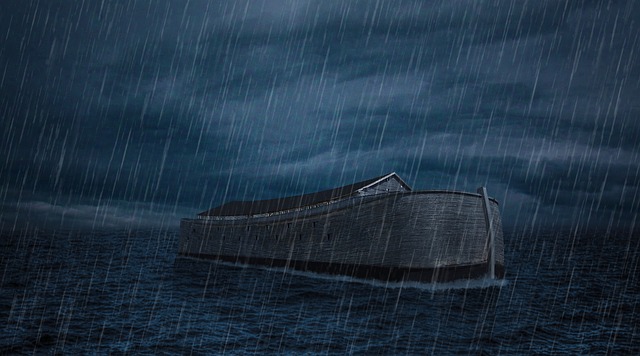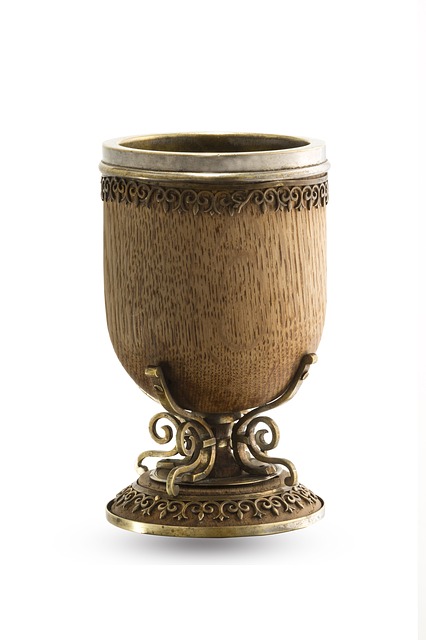6 For while we were still weak, at the right time Christ died for the ungodly. 7 For one will scarcely die for a righteous person—though perhaps for a good person one would dare even to die— 8 but God shows his love for us in that while we were still sinners, Christ died for us. 9 Since, therefore, we have now been justified by his blood, much more shall we be saved by him from the wrath of God. 10 For if while we were enemies we were reconciled to God by the death of his Son, much more, now that we are reconciled, shall we be saved by his life. 11 More than that, we also rejoice in God through our Lord Jesus Christ, through whom we have now received reconciliation. – Romans 5:6-11

Weak
Perhaps nobody wants to be labeled “weak”, but that is precisely the word that the Apostle Paul uses to describe us. While the word may not be attractive to us, it is certainly accurate. More accurate than we would care to admit.
When we think of the word weak, we tend to think in relative terms. Perhaps thinking of a small child in comparison to a developed adult or a frail person in contrast to a healthy athlete. But when Paul in the passage quoted from Romans refers to us as weak he is using an absolute term, not a relative one.
When Paul says we were weak, he is referring to our spiritual position as sinners. Helpless. As ungodly people, we were as impotent as the corpse of Lazarus lying in it’s tomb. Dead in our trespasses and sin we were both helpless and hopeless.
Right Time
Our salvation is not an afterthought. To the contrary, it was planned before the foundation of the world. Lying in our spiritual grave, in our state of “weakness”, Christ died for us at the “right time”. At the time appointed by the Father, He went to the cross, and died in our stead, liberating us from our grave. In doing so, He manifested a love and humility beyond our imagination, prompting Paul to pen what appears to be a commentary on John 3:16.
For a righteous person, which we were not, one would scarcely die. For a good person, which was even further from describing us, one might dare to die. But for a sinner? An enemy of God? Yes. In such a condition God showed His love for us.
Enclosed in our graves of helplessness and hopelessness, only one light could penetrate. The love of God. In His timing, Christ called us forth from our death beds with a victorious shout of acclamation; “It is finished”.
Justified
In our weak condition, we were subject to the wrath of God, the final Judge of all creation. As sinners, we deserved nothing but the just punishment for our sins; eternal separation from the presence of God. Our destiny was eternity in hell, subject to the heat and torment our enmity toward God merited.
But as Paul reminds us, the blood of Christ has purchased our redemption. Accordingly, God has declared us justified in His sight. The Righteousness of Christ has been imputed to us. The Judge of all Creation has given His verdict.
8 There is therefore now no condemnation for those who are in Christ Jesus. 2 For the law of the Spirit of life has set you free in Christ Jesus from the law of sin and death. 3 For God has done what the law, weakened by the flesh, could not do. By sending his own Son in the likeness of sinful flesh and for sin, he condemned sin in the flesh, 4 in order that the righteous requirement of the law might be fulfilled in us, who walk not according to the flesh but according to the Spirit. – Romans 8:1-4
Reconciled
As amazing as our justification is, Paul doesn’t end there. Instead, Paul transitions from a forensic, or legal term, to a filial, or relational one. Not only has God the Judge declared us justified, but God the Father has also called us reconciled. In other words, Christ’s death has not only purchased our redemption, but also reconciled our broken relationship with our Heavenly Father. After pronouncing us innocent, God adopted us into His family.
This is a most important truth. Salvation isn’t “just” being saved from the consequences of our sins, but rather being given the privilege of fellowshipping with the Trinity.
3 And this is eternal life, that they know you, the only true God, and Jesus Christ whom you have sent. – John 17:3
Through the blood of Christ, God has made His once bitter enemies His beloved children. But amazingly, it gets even better!!
Security
Look at what Paul proceeds to say. If the death of Christ is powerful enough to secure our justification and adoption, imagine what His life can do!! In verse ten, Paul reminds us that the cross on Cavalry was not the end of the road for Jesus. Likewise, neither was the Garden tomb. As Scriptures tell us, Jesus not only defeated sin on the cross, but He also defeated death by resurrecting from the grave. Jesus has ascended into Heaven and lives to intercede for us at the right Hand of the Father.
By implication, Paul tells us that our eternity is secure. If the death of Christ could reconcile us to the Father, how much more shall we be saved by His life (v. 10). Because of the death and resurrected life of Christ, Paul has no doubts about the certainty of our ultimate glorification. If Christ’s death can save God’s enemies, His life is more than capable of protecting His children (Philippians 1:6). From beginning to end, our salvation is “entirely of God and His love”.
28 And we know that for those who love God all things work together for good, for those who are called according to his purpose. 29 For those whom he foreknew he also predestined to be conformed to the image of his Son, in order that he might be the firstborn among many brothers. 30 And those whom he predestined he also called, and those whom he called he also justified, and those whom he justified he also glorified.
31 What then shall we say to these things? If God is for us, who can be against us? 32 He who did not spare his own Son but gave him up for us all, how will he not also with him graciously give us all things? 33 Who shall bring any charge against God’s elect? It is God who justifies. 34 Who is to condemn? Christ Jesus is the one who died—more than that, who was raised—who is at the right hand of God, who indeed is interceding for us. 35 Who shall separate us from the love of Christ? Shall tribulation, or distress, or persecution, or famine, or nakedness, or danger, or sword? 36 As it is written,
“For your sake we are being killed all the day long;
we are regarded as sheep to be slaughtered.”
37 No, in all these things we are more than conquerors through him who loved us. 38 For I am sure that neither death nor life, nor angels nor rulers, nor things present nor things to come, nor powers, 39 nor height nor depth, nor anything else in all creation, will be able to separate us from the love of God in Christ Jesus our Lord. – Romans 8:28-39
Rejoice
So what. What do these spiritual truths practically mean to us? Paul goes on to tell us in verse eleven that we should rejoice (joy) in God through our Lord Jesus Christ through whom we have received reconciliation. As we reflect upon the truth of what Paul has written about our salvation, the gift of Joy that the Holy Spirit brings to us is able to “grow” and “blossom”.
The Christmas season is certainly a good time to “cultivate” our joy.
As Christians celebrate Advent, the third week is typically associated with a pink candle, often referred to as the Shepherd Candle, which represents the joy that comes from the arrival of the Christ child. Obviously, we are reminded during this very special season, that without the birth of our Emmanuel in the manger, our salvation would never have been possible.
If you want to “experience” a little joy this Christmas season, reflect on the One who left Heaven’s throne to become weak to save you from your weakness.
4 But when the fullness of time had come, God sent forth his Son, born of woman, born under the law, 5 to redeem those who were under the law, so that we might receive adoption as sons. – Galatians 4:4-5
10 And the angel said to them, “Fear not, for behold, I bring you good news of great joy that will be for all the people. 11 For unto you is born this day in the city of David a Savior, who is Christ the Lord. 12 And this will be a sign for you: you will find a baby wrapped in swaddling cloths and lying in a manger.” 13 And suddenly there was with the angel a multitude of the heavenly host praising God and saying,
14 “Glory to God in the highest,
and on earth peace among those with whom he is pleased!” – Luke 2:10-14
Joy to the World
Joy to the World; the Lord is come!
Let earth receive her King!
Let ev’ry heart prepare Him room,
And Heaven and nature sing.
Joy to the earth, the Saviour reigns!
Let men their songs employ;
While fields & floods, rocks, hills & plains
Repeat the sounding joy.
No more let sins and sorrows grow,
Nor thorns infest the ground;
He comes to make his blessings flow
Far as the curse is found.
He rules the world with truth and grace,
And makes the nations prove
The glories of His righteousness,
And wonders of His love.
May your Christmas be “full” of Joy as you reflect on your salvation and your Savior.







